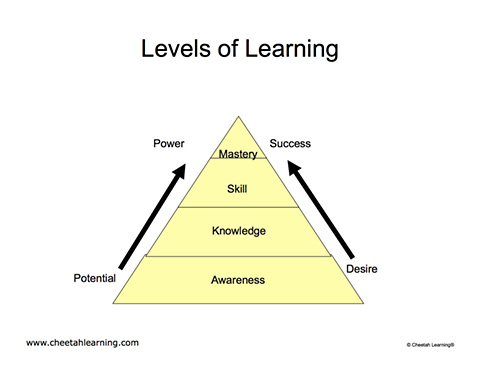A wonderful thing about humanity: most people love to learn. Think about how much fun it is when you have a question, and you are able to succeed in finding the answer through your own efforts researching online or in a library. You are intrinsically motivated to learn and to feel good about succeeding with your own investigative efforts. This, at a very fundamental level, is considered “learning.”
|
ADVERTISEMENT |
Satisfying an emerging curiosity on a topic by researching an initial question is the first level of learning: awareness. But to truly achieve mastery (the highest level of learning) on any topic, you have to move through four levels of learning: awareness, knowledge, skill, and mastery.

…

Add new comment